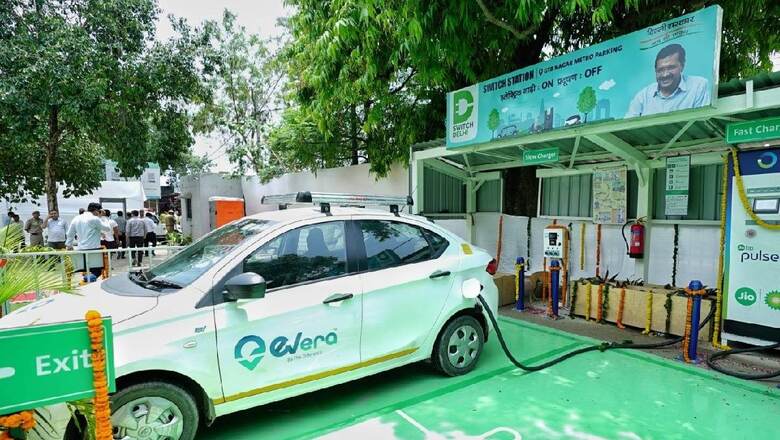
views
The Nitish Kumar-led government on Tuesday approved the Bihar Electric Vehicle (EV) Policy-2023 to achieve 15 percent EVs in all vehicle registrations in the state by 2028, a senior government official said.
The decision to this effect was taken in the cabinet meeting chaired by Chief Minister Nitish Kumar.
S Siddharth, the additional chief secretary (cabinet secretariat), told reporters after the cabinet meeting, “The main objective of the scheme is to encourage faster adoption of electric and hybrid vehicles by the people by offering incentives on the purchase of electric vehicles and also by establishing a necessary charging infrastructure. The scheme will help in addressing the issue of environmental pollution and fuel security”
In addition, he said, “The Bihar Electric Vehicle Policy-2023, which is designed to steer the state towards a sustainable transport paradigm, outlines ambitious goals for the next five years culminating in 2028”.
To incentivize the adoption of electric vehicles the EV policy introduces various measures, including subsidies on Motor Vehicle (MV) Tax of up to 75 percent and purchase incentives of up to Rs 1.25 lakh for the first 1,000 personal four-wheeler EVs.
“There are similar benefits for the first 10,000 personal two-wheeler EVs with subsidies on motor vehicles tax of up to 75 percent and purchase incentives up to Rs 10,000,” he said.
The policy seeks to enhance environmental quality by mitigating air pollution while fostering startups and investments in the electric mobility sector and its associated support industries, he added.
The policy also promotes the use of renewable energy for EV charging stations, with approved tariff rates for high-tension EV charging stations set at Rs 8/KvA for the fiscal year 2023-24.
Further, provisions for incentives for scrapping EVs and their components are outlined in the policy, Siddharth said.” The state cabinet also approved a proposal of the transport department to acquire 400 electric buses under the “PM-e Bus Sewa” programme for six districts in Bihar.
“These buses, slated to operate in Patna, Muzaffarpur, Gaya, Bhagalpur, Darbhanga and Purnea aim to diminish reliance on conventional petrol and diesel-powered public transport,” he said.


















Comments
0 comment